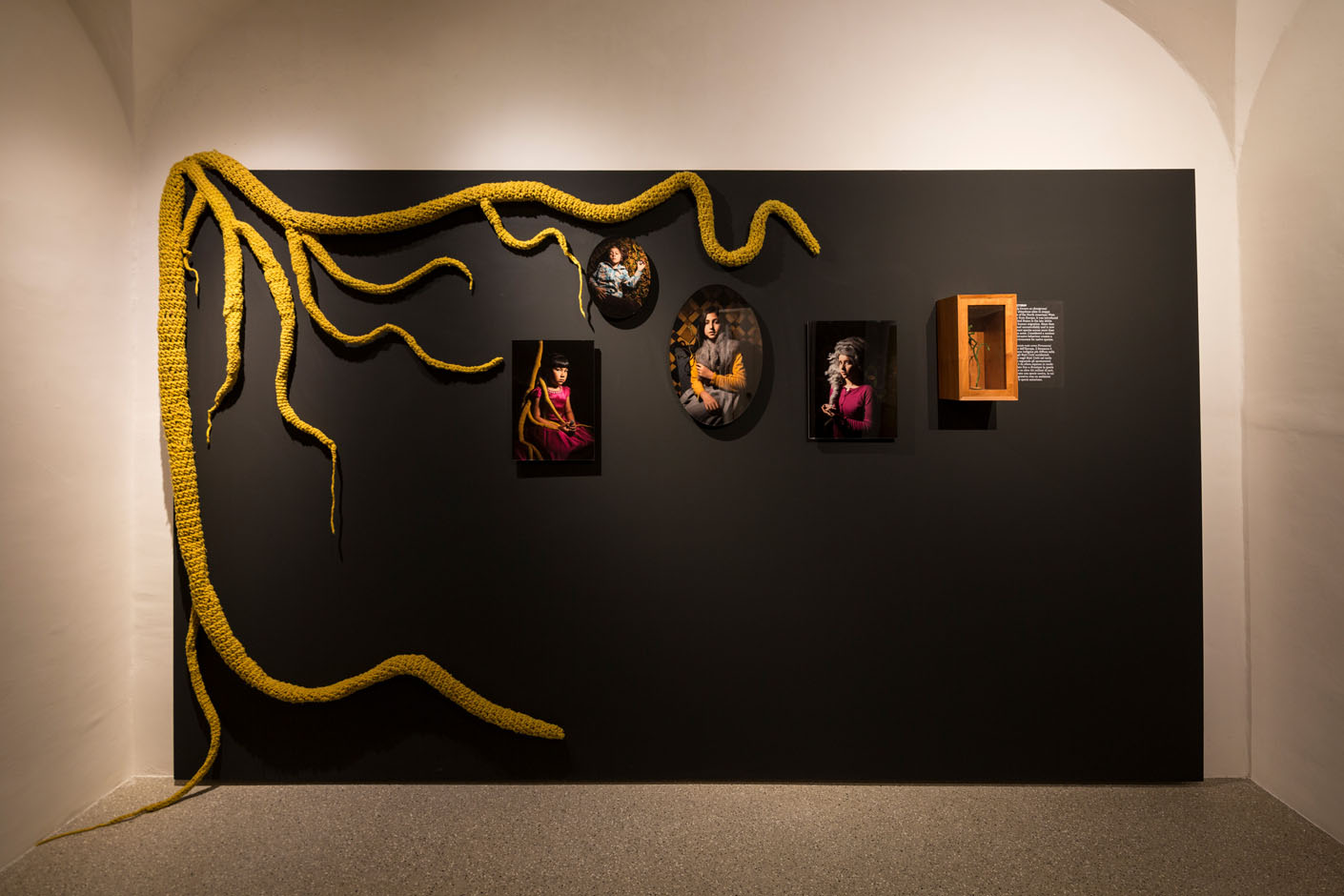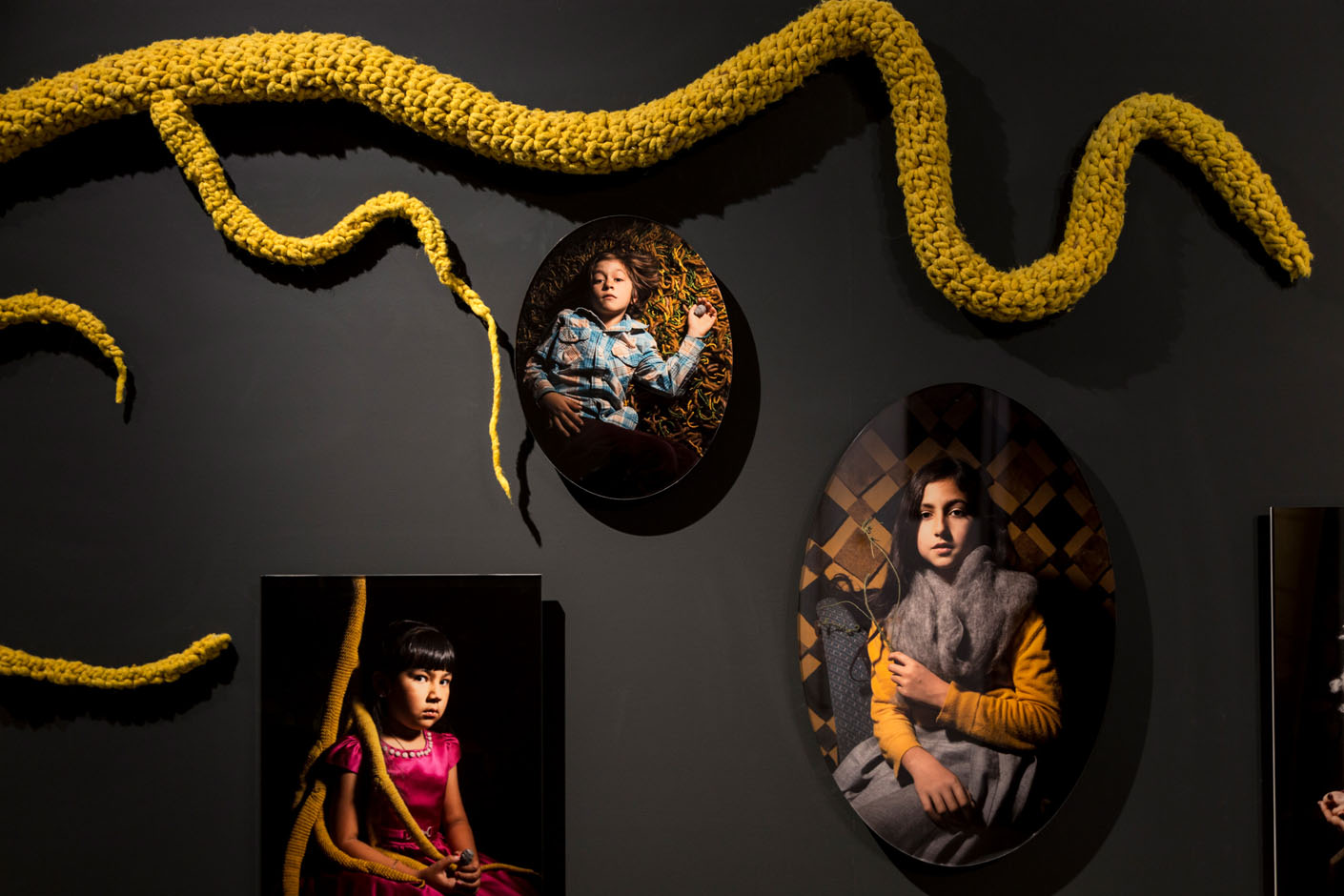Artist
Daniela Edburg
Uprooted, an ongoing, participatory project, examines the geography, botany and sociology of Colorado’s Front Range mountains as a way of highlighting histories of migration and transplanted populations. In this iteration, Daniela Edburg focuses on the journey of a plant found in the western North-American landscape and how it connects to political attitudes towards migration.
Bromus tectorum, commonly known as cheatgrass, is the most ubiquitous alien in steppe vegetation of the western United States. Originally from Europe, it was introduced to the US in the late 1800s following human migration, and since then it has spread uncontrollably and is now the dominant species across more than 101 million acres. Considered a noxious weed, its invasive behaviour creates a hostile environment for native species. The plant’s wide-spreading roots are represented here in hand-crocheted alpaca wool, an animal displaced from the Andes and transplanted to the Rocky Mountains, where it is now popularly bred.
In a series of portraits that sit alongside the sprawling plant, young people with Mexican roots who live in the USA hold miniature, crocheted versions of transplanted natural elements: plants, rocks – even tornadoes. Each one forms a quintessential part of the North American landscape of today, bringing with it stories of movement, growth, and destruction.
Daniela Edburg (1975) was born in Houston and lives in San Miguel de Allende in Mexico. Her work involves the staging of photographic fiction, including textile elements and research aimed at understanding humanity’s connection with nature. Recent exhibitions include Cherryhurst House (Houston, USA), 2016; Museum of Photographic Arts (San Diego, USA), 2017; and the Museum of Fine Arts Boston (USA), 2013.




























